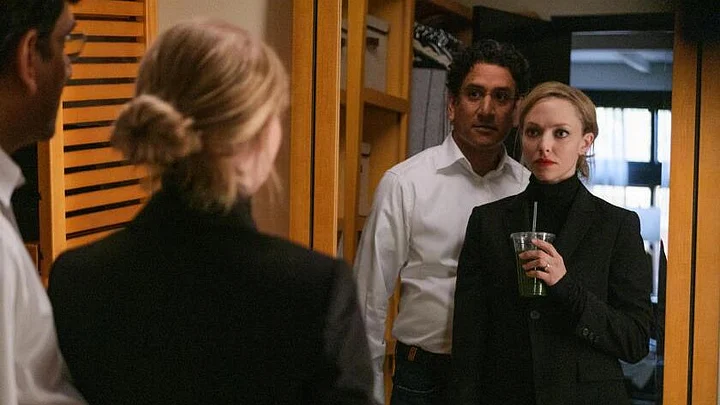When Ramesh ‘Sunny’ Balwani’s trial began early this March, it lacked the hullabaloo that surrounded the trial and subsequent conviction of Elizabeth Holmes – the former CEO of now-defunct blood-testing company Theranos – according to The New York Times.
In fact, it was consistent with his portrayal in Hulu’s The Dropout as a despised man, overshadowed by Holmes even in the crimes they had allegedly committed together.
The eight-episode miniseries is an absurd, comical rendition of a true story of trickery involving multibillion-dollar company Theranos and a blood-testing technology that didn’t work. (You can read about The Dropout and the Theranos scandal in detail here and here.)
Then COO of Theranos and Holmes’ romantic partner, Balwani was charged with two counts of conspiracy to commit wire fraud and nine counts of fraud – the same as Holmes. But unlike her, he was never the face of the company; he wasn’t the ‘visionary’ that Holmes was.
Balwani, played skilfully by Indian-origin actor Naveen Andrews, was hated by the investors and feared by his own employees. He was, according to his portrayal in the show, abusive and manipulative, and his influence on Holmes and Theranos’ work culture was unnerving. In other words, he wore his toxic masculinity on his sleeve.
However, The Dropout manages to add nuance to his villainisation as well as his unhealthy relationship with Holmes. From being a vile man throughout the show, Balwani assumes shades of desperation, defeat, and even culpability towards the end.
A Natural Villain
Sunny Balwani was in his thirties when he met an 18-year-old Elizabeth Holmes. They fell in love. But somewhere down the road, their relationship began serving a purpose other than love; for Holmes, it was a means to keep her company afloat, and for Balwani, it was an opportunity to assert his control over her.
Balwani’s arrival as COO brought some marked changes to Theranos’ workspace. There were more armed guards, surveillance cameras, and administrative control over lab processes. He manufactured an environment of fear and paranoia in the company’s ‘open-floor offices’, so much so that the employees thought twice before speaking to each other.
As Holmes rose to success, some of her ‘allies’ (read old white men) wanted her to get rid of Balwani. The fact that he was a Pakistani-born Sindhi man in a post 9/11 United States didn’t really help his image.
Balwani wasn’t easy on Holmes either. He would control her behaviour – from her eating habits to her appearance – and often infantilise and abuse her. (He was later accused of sexual harassment by Holmes, details of which have not been explicitly mentioned in the show.)
In some ways, it was his own toxic masculinity that defeated Balwani – it made him the perfect fall guy for when Theranos’ ‘bloody’ secrets were out. No one is indispensable, he would tell one of his employees. Turns out, he wasn't either. As Holmes played the victim card, fleeing from culpability, Balwani had no choice but to take responsibility for his actions.
He was a natural villain – aggressive and scary. But there was something so comical about even his worst outbursts (delivered skilfully by Andrews). The Dropout creator Elizabeth Merriwether, perhaps, never intended for him to be feared or hated, but rather laughed at. For he was neither the protagonist nor the antagonist; he was just an accessory who misused his power to control and manipulate others, but was, in fact, being manipulated himself.
(At The Quint, we question everything. Play an active role in shaping our journalism by becoming a member today.)
